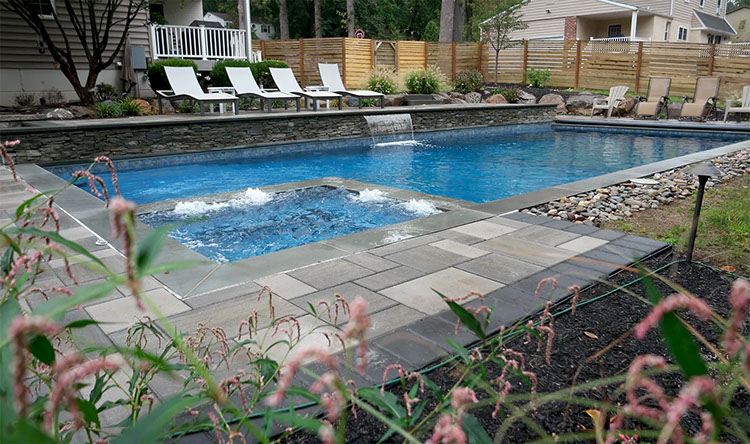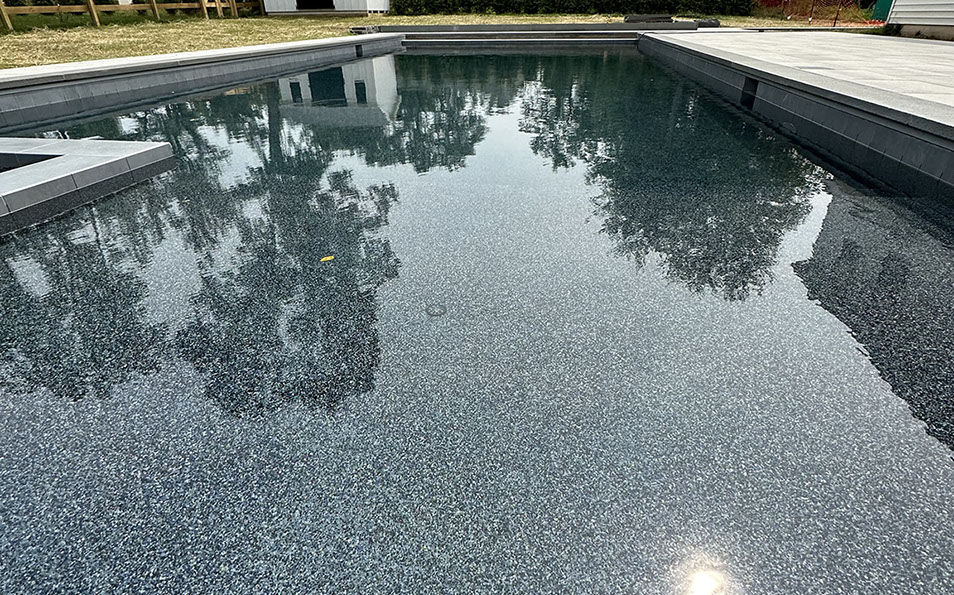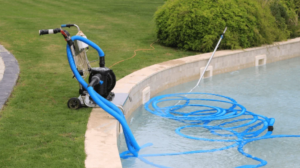Introduction
Imagine this: it’s a hot summer afternoon in Pennsylvania, and instead of driving to the crowded community pool, you’re lounging by your very own sparkling backyard oasis. Sounds amazing, right? But let’s face it—installing a swimming pool isn’t exactly cheap. For a detailed breakdown of swimming pool installation costs, check out our comprehensive guide . According to HomeAdvisor, here’s what you can expect to pay for a new pool installation (source ). The average cost of building an in-ground pool in the U.S. ranges from $30,000 to $75,000, depending on size, materials, and features.
The good news? You don’t need to pay for it all upfront. There are plenty of ways to finance your swimming pool project. Let’s dive into the best options and explore how they can help you create your dream backyard without breaking the bank.
1. Personal Loans for Swimming Pool Financing
A personal loan is one of the most straightforward ways to fund a swimming pool. These loans are unsecured, meaning you don’t have to put up collateral like your home or car.
How It Works:
- Borrow a lump sum from a bank, credit union, or online lender.
- Repay the loan over a fixed term (usually 2–7 years) with interest.
Why Choose a Personal Loan?
- Quick approval process.
- No risk of losing your home.
- Fixed interest rates make budgeting easier.
Things to Consider:
- Interest rates may be higher than secured loans.
- Approval depends on your credit score.
FAQ: Can I get a personal loan with bad credit?
Yes, but expect higher interest rates. Consider improving your credit score first or applying with a co-signer to secure better terms.
Insert image of a family enjoying their new pool here.
2. Home Equity Loans or HELOCs
If you’re a homeowner, tapping into your home equity might be a smart way to finance your pool. A home equity loan gives you a lump sum, while a Home Equity Line of Credit (HELOC) works like a credit card, allowing you to borrow as needed.
How It Works:
- Use your home’s equity as collateral.
- Interest rates are typically lower than personal loans.
Benefits of Using Home Equity:
- Lower interest rates compared to unsecured loans.
- Potential tax deductions on interest (consult a tax advisor ).
Drawbacks to Keep in Mind:
- Risk of losing your home if you default.
- Longer application process.
FAQ: Is it risky to use my home as collateral?
Yes, there’s risk involved. If you fail to repay, your lender could foreclose on your home. Only consider this option if you’re confident in your ability to make payments.

3. Pool-Specific Financing Programs
Many pool builders and manufacturers offer financing programs tailored specifically for swimming pools. These are often convenient because they bundle the cost of installation with the loan.
How It Works:
- Work directly with your pool contractor to apply for financing.
- Terms vary but often include promotional offers like low or no interest for a set period.
Advantages of Pool-Specific Financing:
- Streamlined process since it’s tied to your pool purchase.
- Promotional deals can save money.
Disadvantages to Consider:
- Limited flexibility if you want to shop around for contractors.
- Some programs may have high interest rates after the promotional period ends.
FAQ:
Are pool-specific loans better than other options?
It depends. They’re convenient but may not always offer the best rates. Compare them with other financing methods before committing.
Explore the expert services we offer as swimming pool contractors to bring your vision to life.
4. Credit Cards
Using a credit card might seem unconventional for such a large expense, but it can work if you qualify for a card with a 0% introductory APR offer.
How It Works:
- Charge the cost of your pool to your credit card.
- Pay off the balance before the introductory period ends to avoid interest.
Pros of Using a Credit Card:
- No interest if paid off during the promotional period.
- Rewards points or cashback benefits.
Cons to Be Aware Of:
- High interest rates after the promotional period.
- Not ideal for large expenses unless you can pay it off quickly.
FAQ: Should I use a credit card for my pool?
Only if you’re confident you can pay off the balance within the promotional period. Otherwise, the interest charges can add up quickly.
5. Cash-Out Refinancing
If you’ve built significant equity in your home, a cash-out refinance allows you to replace your existing mortgage with a larger one and pocket the difference.
What Is Cash-Out Refinancing?
Imagine your home is worth $300,000, and you owe $200,000 on your mortgage. With a cash-out refinance, you could take out a new mortgage for $250,000, using the extra $50,000 to fund your pool project.
Benefits of Cash-Out Refinancing:
- Lower interest rates compared to personal loans.
- Long repayment terms.
Drawbacks to Consider:
- Extends your mortgage repayment timeline.
- Closing costs can be expensive.

FAQ: Is refinancing worth it for a pool?
It depends on your financial situation. If you plan to stay in your home long-term and need a large amount of cash, it could be a viable option.
Comparison Table: Swimming Pool Financing Options
| Option | Interest Rates | Collateral Required? | Best For… |
| Personal Loan | Moderate | No | Borrowers with good credit |
| Home Equity Loan/HELOC | Low | Yes | Homeowners with significant equity |
| Pool-Specific Financing | Varies | No | Convenience seekers |
| Credit Card | High | No | Short-term, small expenses |
| Cash-Out Refinancing | Low | Yes | Large projects and long-term homeowners |
Tips for Choosing the Right Option
- Assess Your Budget: How much can you comfortably afford to borrow and repay monthly?
- Check Your Credit Score: A higher score opens doors to better rates and terms.
- Shop Around: Don’t settle for the first offer. Compare multiple lenders and programs.
- Read the Fine Print: Look out for hidden fees, prepayment penalties, or variable rates.
Real-Life Example: How Sarah Financed Her Dream Pool
Sarah, a homeowner in Pennsylvania, wanted a pool but didn’t have $50,000 saved. She opted for a home equity loan, which gave her a low interest rate and manageable monthly payments. Within six months, her backyard was transformed into a stunning oasis. Discover sustainable choices for your home with our eco-friendly swimming pool options .
Unique Financing Solutions You Might Not Know About
- Green Energy Loans: If your pool includes energy-efficient features like solar heating, the U.S. Department of Energy explains how solar water heating can make your pool more sustainable (source ).
- Peer-to-Peer Lending: Platforms like LendingClub connect borrowers with individual investors, offering competitive rates.
Conclusion
Building a swimming pool is a big investment, but with the right swimming pool financing options , it doesn’t have to feel overwhelming. Whether you choose a personal loan, tap into your home equity, or explore pool-specific programs, the key is finding a solution that fits your budget and lifestyle.
Your dream pool is closer than you think—let’s make it happen! Get inspired by our top 10 custom pool designs that can transform your backyard into a personal oasis. Start exploring your options today and take the first step toward creating your backyard oasis. Got questions about financing? Learn more about Poseidon’s Custom Pools and how we can help bring your vision to life by visiting our About Us page .
Ready to dive in? Find the best pool builders in Pennsylvania to guide you through the process. And don’t forget to share this article with friends who might also be dreaming of their own pool!
For more tips on home improvement financing, check out our essential tips for beginners exploring DIY swimming pool construction .





One Response